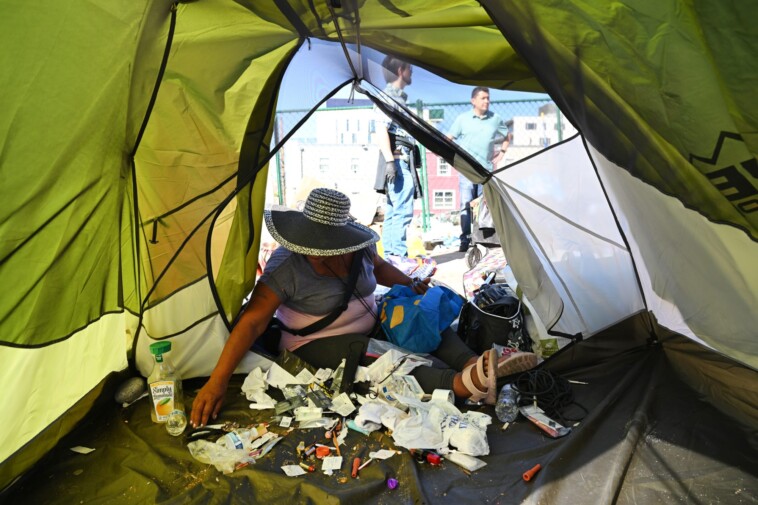
An expansion of a Denver law from the late ’90s will allow for unlimited needle exchange sites across the city and remove a previously required restraint on proximity to schools and daycares.
The Denver City Council approved the new ordinance which removes the previous three-site cap established by the 1997 law and allows an unlimited number of sites to exist in areas zoned for medical offices, according to The Denver Post.
Beyond that, though, it also negates the 1,000-foot buffer between the needle-sharing sites and schools or daycares but the ordinance still needs Mayor Mike Johnston’s approval.
Needle-sharing sites are intended to lessen the usage and spread of dirty needles and offer fresh injecting equipment to just about anyone.
Tainted or used materials can also be dropped off at the sites to be disposed of.
The sites are intended to aid with addiction recovery and ensure that anyone using drugs that require injections is at least doing it with clean materials.
Used needles can infect users with diseases like hepatitis.
The sites also offer mental health and other addiction treatment options to anyone looking for help.

The city council approved the ordinance in an 8-5 vote.
Opponents on the council said that while they understand the good that can come from the sites, they want to see some more stringent rules.
They said that they would support an expansion of the needle-sharing programs including increasing the cap, but in moderation.

Most of all, they don’t support axing distancing requirement — and want to keep the sites away from schools and kids.
“Needle exchange does work. Our communities have been clear … that removing the distance restriction is something that they do not support,” Councilman Darrell Watson, who opposed the bill, said in the meeting.
“I don’t believe that if this bill passes — and it’s signed by our mayor — that anything is going to change in your life. Unless one of your relatives who’s on the edge happens to get a clean needle and stays alive long enough to get into treatment,” Councilman Paul Kashmann, who voted in favor of the law, told the local newspaper.
Johnson, who was admittedly wary about the proposal to bolster the 1997 law, has yet to sign or veto the bill, but with a Sunday deadline, the clock is ticking.
Supporters of the policy pointed to data showing that drug users who visit needle exchange programs are more likely to seek treatment compared to other addicts.
All needle-sharing centers are required to be licensed by the Denver Department of Public Health and Environment.
The revised law would also require that any potential site receive permission from the surrounding communities before officially establishing anything as part of their license agreement with the DDPH.

